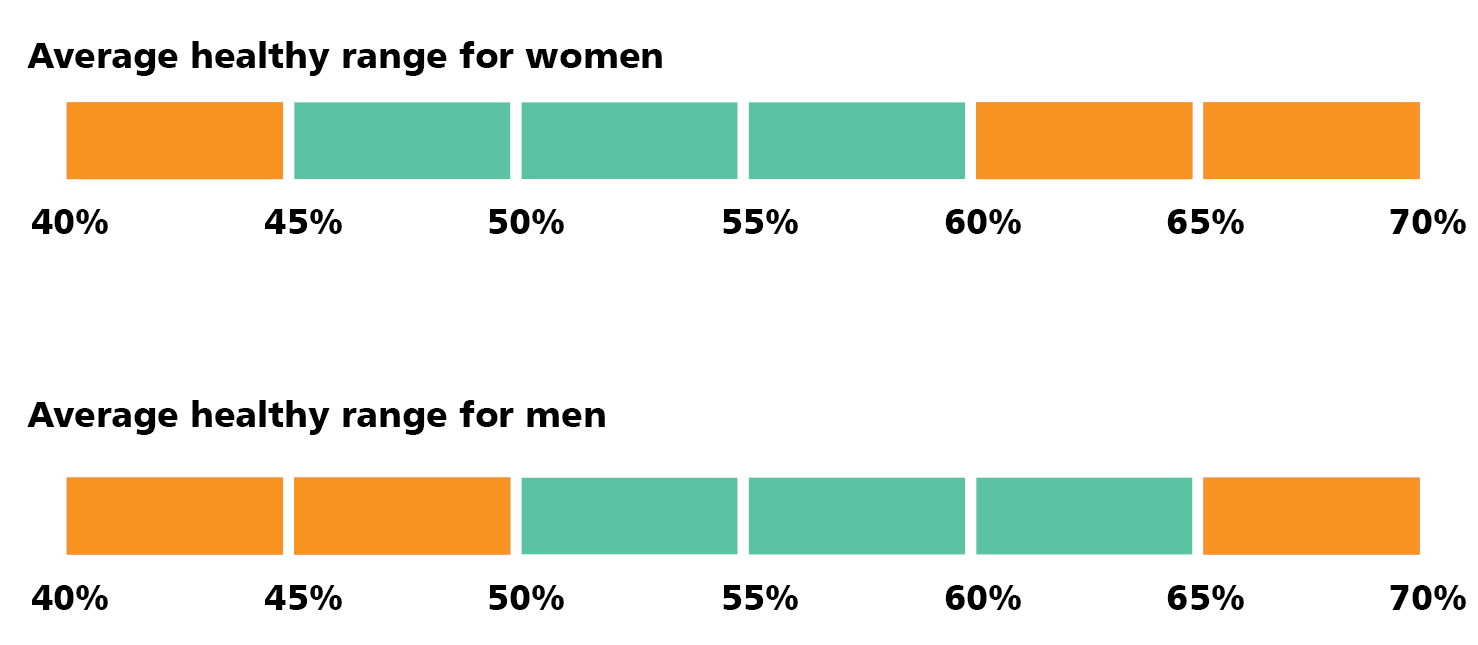Body Water

Body Water is the water contained in the body's cells, and can generally be divided into intracellular (inside the cells) water and extracellular (outside the cells) water. As muscle contains a higher percentage of water than fat cells, body water often correlates with muscle mass - the more muscle mass you have, the more body water you will have as well
It is important to note that drinking water will not automatically and immediately turn into "body water". Body water changes slowly and is more reflective of overall hydration! If you drink a tall glass of water quickly, your device will likely interpret it as pure weight, as the body has not absorbed it yet.
Normal range for body water varies with age and gender. Body water tends to be higher for babies (~75%), decreases as we grow into adulthood, and stays relatively stable throughout adult life. In general, men (50-65%) tend to have more body water than women (45-60%).

Why is it important to estimate your body water?
You probably don’t need a body composition analyzer to tell you that you’re thirsty.However, knowing your body water level is very useful for tracking the source of weight change!
For example, when people begin a "diet" - which typically refers to a calorie-restricted diet - water weight is typically the first to go, before body fat starts to decrease significantly. So if you’ve noticed your weight dropping on the scale, it’s important to first confirm if it’s actually a decrease in body fat, or just losing water.
We hope that has helped clarify how body water can be a very useful measure of body composition!